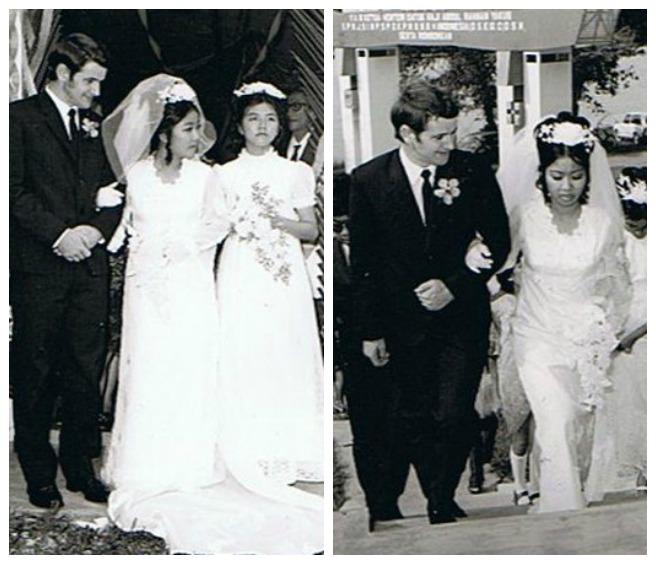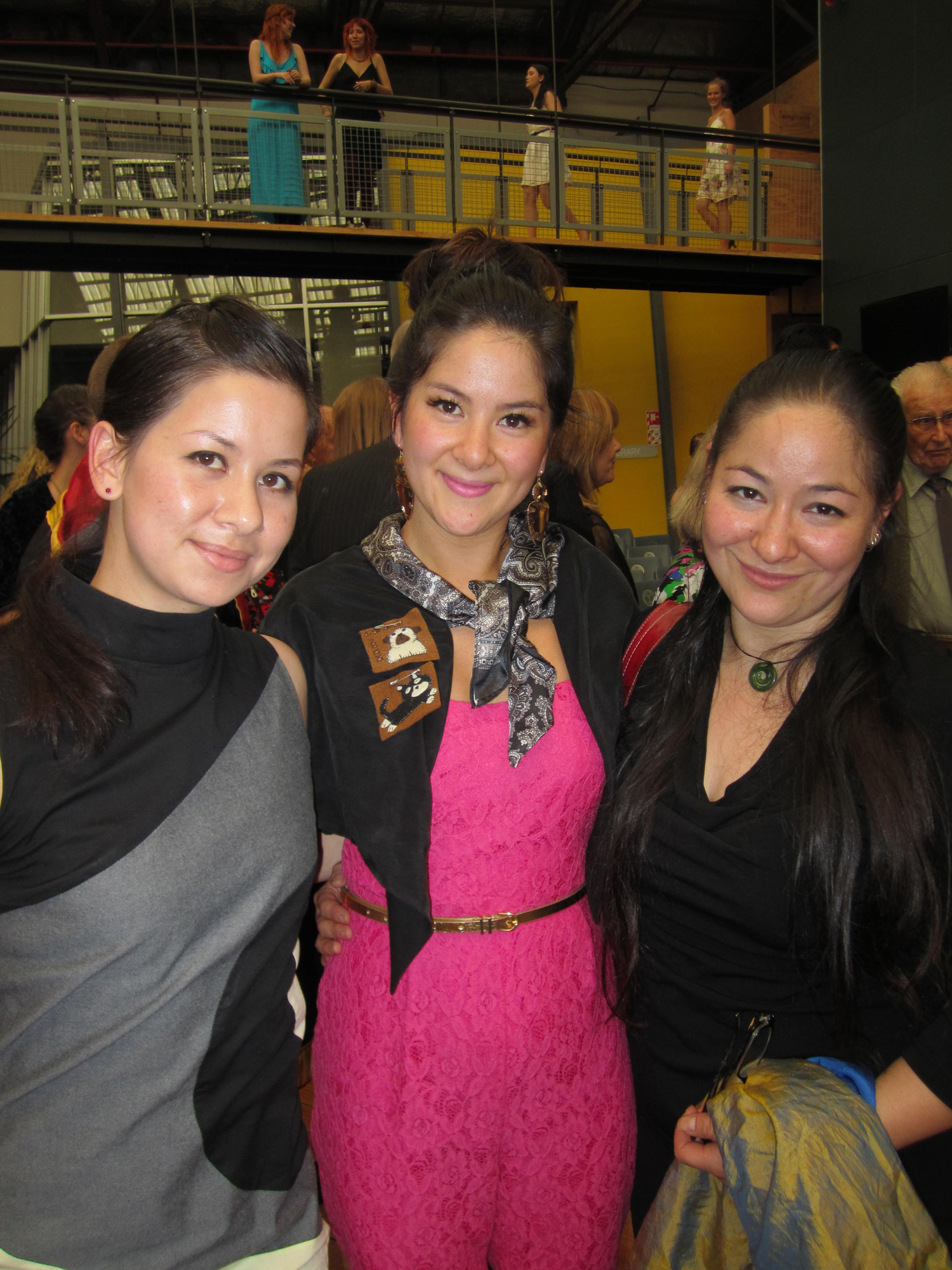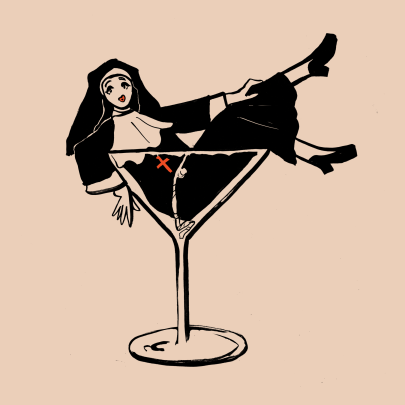Apr 6, 2016 Theatre
Above: Alice, Anna and Angela Canton in 1990.
Alice Canton’s forthcoming play WHITE/OTHER is an exploration of racial identity in New Zealand today. It follows the actress/playwright on her journey to “self un-discovery” as she dissects layers of prejudice in search of her authentic voice. We asked her to describe her motives for writing the show by way of her family photo album.
White and Other. Otherwise unmatched pairs, colliding with resultant purging. What would it look like in a culture that didn’t have such a yawning divide between the two?
My parents were married in Limbang, Sarawak on December 10, 1972. Dad is fourth-generation born Pakeha New Zealander. Mum is second-generation born Chinese Malaysian. They met over there in the sixties when hair was long and skirts were short. Two seemingly different cultures attracted by a genuine curiosity and love for each other’s language, food, customs and history. As a child of a cross-cultural union, I am an embodiment of the infinite and sometimes imperceptible space that exists between them.
Growing up different in a small South Island town, the only Others whom I felt shared and understood my “identity woes” (for lack of a better phrase) were my older sisters, Angela and Anna. I looked to them as my mentors and clung to them, observing and copying everything they did (even their unprecedented love of U2, Tolkien, and novelty cat-themed gifts). I still do. When I think about them watching my show, I wonder whether they are watching it through my eyes.

For anyone born of two or more cultural identities, you’ll recognize that familiar pang of frustration when filling out a form that asks you to tick a box to “specify your ethnicity”. After trawling through the long, and in some cases extensive list of races, nationalities and ethnic groups, you specify yourself into a simplified lump: Other.
This is just the beginning of what quickly becomes a tired and problematic way of looking at ethnicity. I’m referring to a system that has not shifted to accommodate the changing face of our modern society. Subsequently, those unable to conform to a singular, commodified box would rather reduce themselves to the unhelpful adjective of Other than commit to the One that Best Describes Them (here’s a clue: there isn’t One).
To be Othered is to be put into a state of difference. Different to a measure of ordinary or normal. Different, in this case, to White. And although these processes are by no means set-up to cause overt discriminatory practice, they inherently reinforce a social narrative that comes to bear on a person’s ability to speak, be heard, or go about their daily lives. An internal racial bias carried by a system that favours some groups over others. And leaves the rest feeling invisible.

As an artist of Other, I have grown accustom to carving out meaningful work from the limited opportunities I have available to me. Turns out Shakespeare just didn’t write enough good roles for young, Eurasian female protagonists! It also turns out that nobody ever writes good enough roles for anyone who’s talented, hard-working and dynamic. Period.
Writing and performing WHITE/OTHER is about me coming to terms with complexity of my cultural identity, in the hopes that others will see how the system we currently operate in is broken, and that we all need to be responsible for fixing it. We all have a part to play in creating stories that reflect the diversity of the world in which we live. The moment we all acknowledge our complicity in the current situation, the sooner we can work towards changing it. That is, unless you are happy to keep it the same. In which case, don’t bother coming to the show.
WHITE/OTHER, 12-21 April, The Basement Theatre.





